Key takeaways:
- Interactive cooking classes combine hands-on experiences with a sense of community, fostering friendships and collaboration among participants.
- Participants develop practical culinary skills, boost confidence through feedback, and learn to embrace mistakes as part of the cooking process.
- Future cooking classes are expected to integrate technology, cater to diverse dietary needs, and enhance community engagement through sustainable practices.
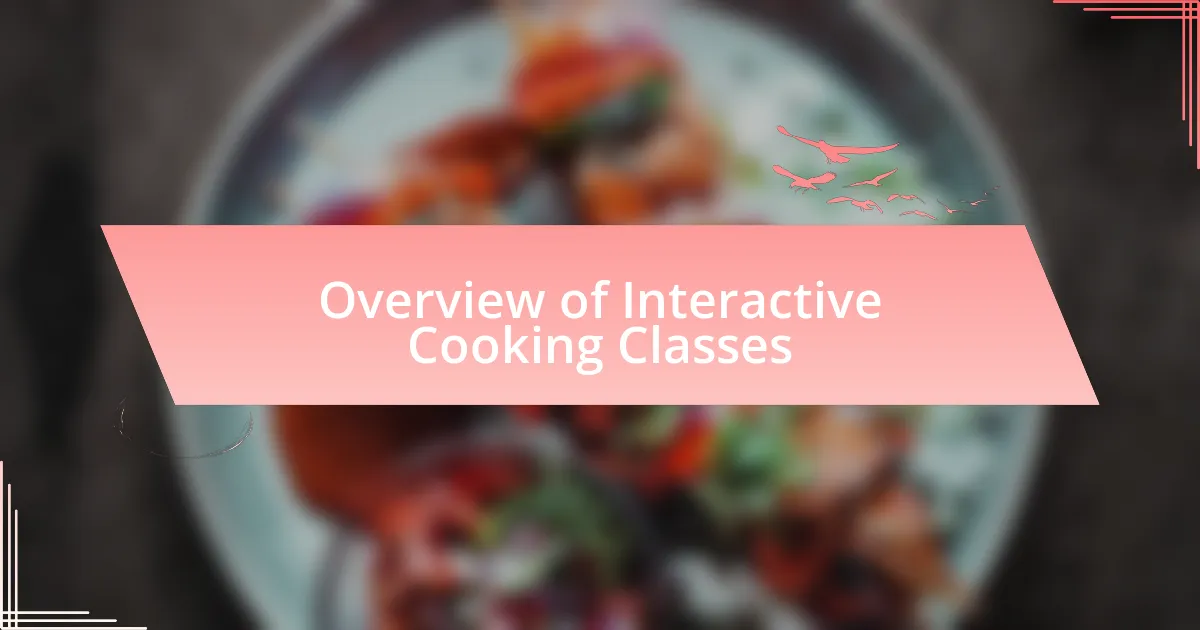
Overview of Interactive Cooking Classes
Interactive cooking classes offer a unique blend of learning and enjoyment, where hands-on experiences take center stage. I remember my first class, where I was greeted not just by a chef but a fellow food enthusiast. The excitement in that kitchen was palpable—everyone was eager to chop, stir, and sauté. Have you ever felt the joy of creating a dish from scratch, surrounded by like-minded individuals?
These classes are designed to break down the barriers of traditional cooking lessons, where theory often overshadows practice. In my experience, being actively involved in the cooking process transforms the way you understand flavors and techniques. I can still recall the moment when I mastered my first pasta dish; it made me realize how empowering it feels to bring your culinary vision to life.
Furthermore, interactive cooking classes often foster a sense of community, turning strangers into friends over shared meals. I’ve seen people laugh, bond, and trade tips, creating an atmosphere that feels more like a family gathering than a cooking lesson. Isn’t it fascinating how food can bring people together in such a meaningful way?
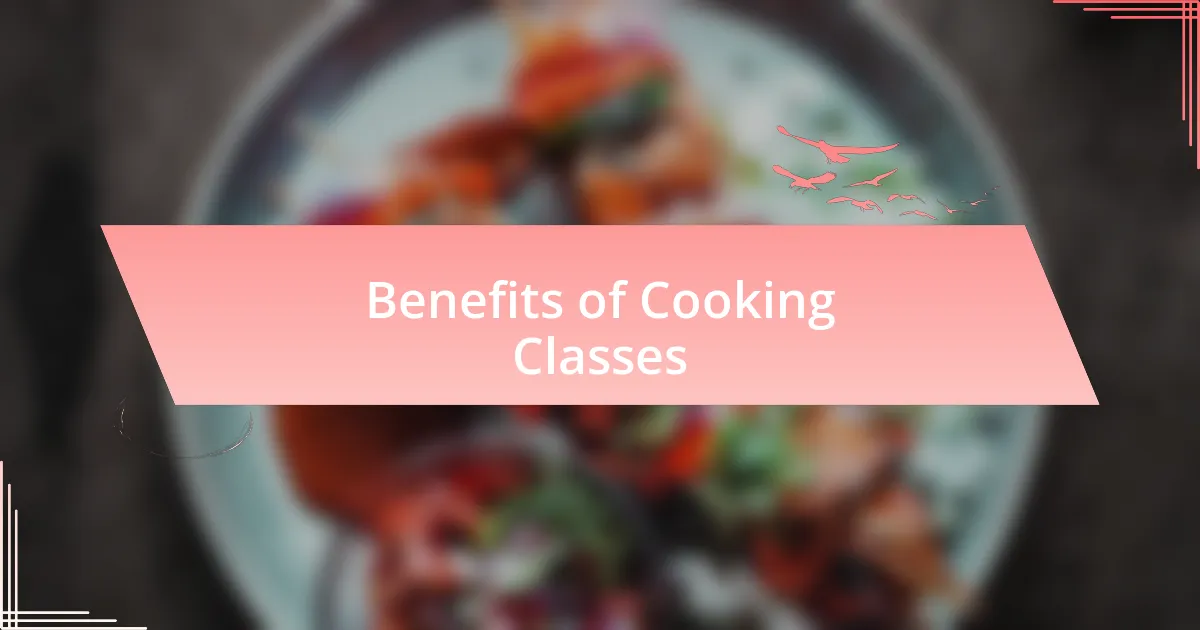
Benefits of Cooking Classes
One significant benefit of cooking classes is the opportunity to develop practical skills that can instantly elevate your home cooking. I remember attending a class where we worked on knife techniques; the chef demonstrated how to julienne vegetables swiftly. The realization that I could chop like a pro made me feel like I had unlocked a new level in my culinary journey.
Another advantage is the exposure to diverse cuisines and cooking methods. In one session, we explored Thai cuisine, and I was completely captivated by the balance of flavors involved. It encouraged me to experiment with ingredients I had never considered before. This exploration not only enriches your palate but also inspires creativity in your own dishes.
Additionally, the encouragement and feedback from chefs and fellow participants can significantly boost your confidence in the kitchen. I distinctly remember receiving praise for a dish I thought I had messed up. That small moment sparked a newfound belief in my culinary abilities, proving that even minor victories in cooking can fuel a deeper passion for food. Wouldn’t you agree that confidence can often be the missing ingredient in achieving great results?
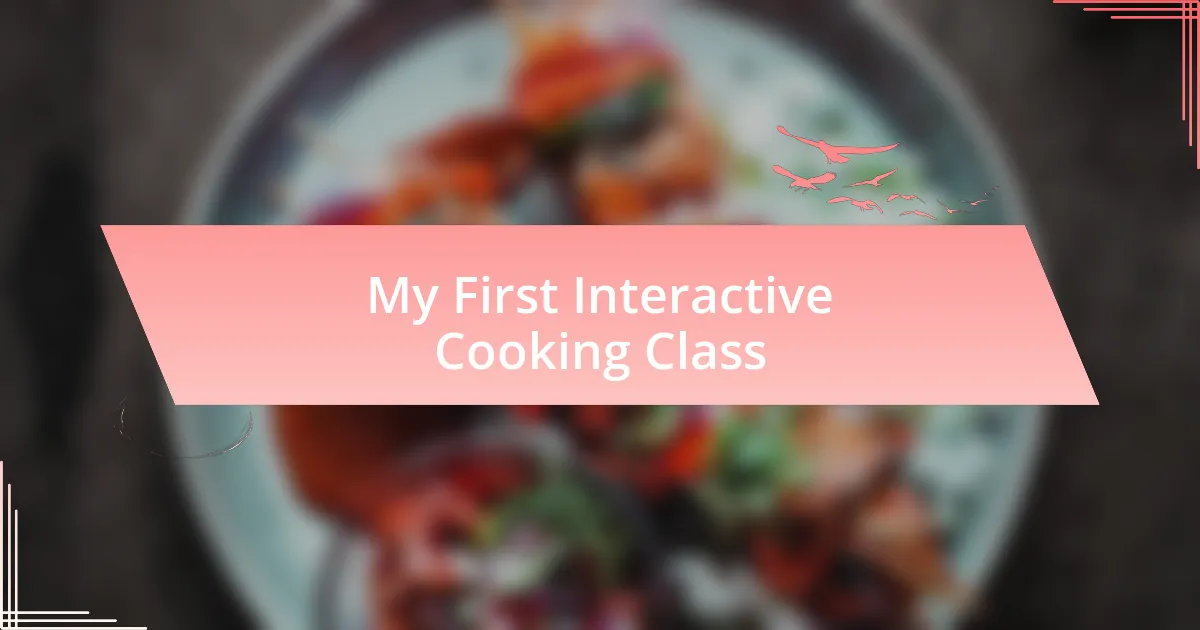
My First Interactive Cooking Class
My first interactive cooking class was an eye-opening experience that completely transformed my perception of cooking. Walking into the vibrant kitchen filled with the scents of fresh herbs and spices, I felt a mix of excitement and nervousness. As we began, I learned that we wouldn’t just be watching the chef; we were expected to dive in and create our own dishes from scratch.
Midway through that class, I found myself struggling to perfect a pasta sauce. The chef noticed my frustration and calmly provided guidance, encouraging me to trust my instincts and taste along the way. It was a pivotal moment for me—learning that cooking isn’t just about following a recipe, but about feeling and connecting with each ingredient. Have you ever felt that rush of realization when you finally grasp a concept that once seemed daunting?
By the end of the session, I had forged connections with fellow participants as we shared both triumphs and blunders. I vividly remember laughing with a stranger over a bread dough mishap, and in that chaos, I discovered the joy of camaraderie in the kitchen. This shared experience reminded me that cooking brings people together, sparking lasting friendships and cherished memories.
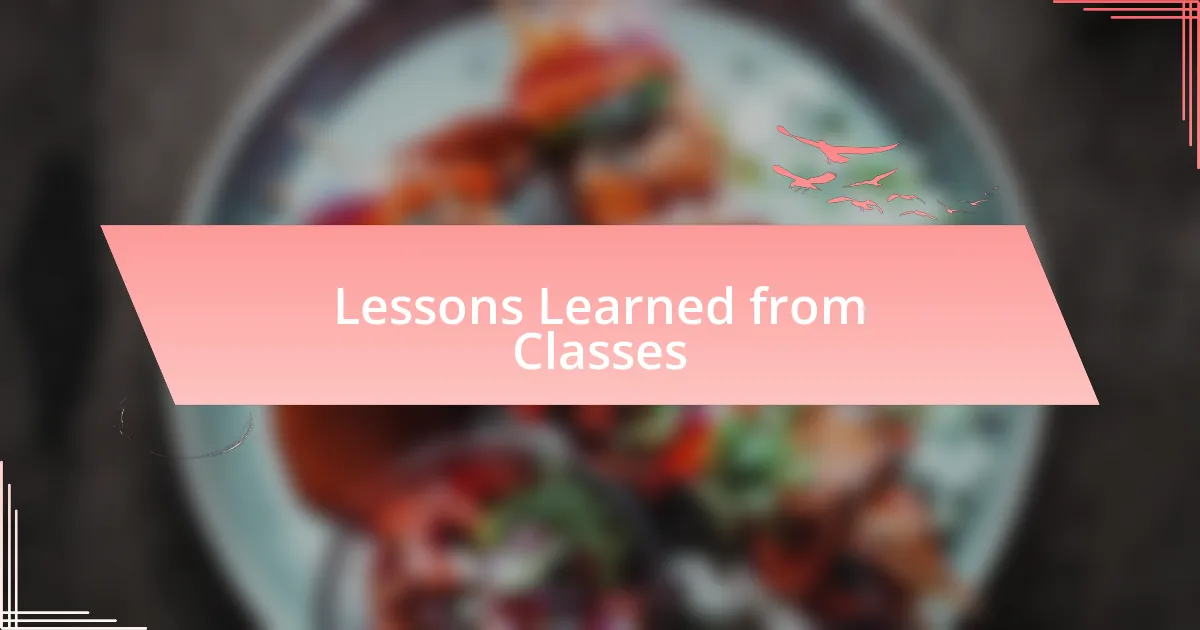
Lessons Learned from Classes
Taking part in that interactive cooking class taught me how crucial it is to embrace mistakes. I remember when I accidentally added too much salt to a dish. At first, I panicked, but then I learned how to balance it out with a bit of sugar. It was a tiny victory that showed me that cooking is less about perfection and more about adaptability and creativity. Have you ever fixed a mistake in the kitchen that turned out even better than the original idea?
Another lesson that struck me was the importance of teamwork. In one exercise, we were divided into groups, and I had the chance to lead a team while preparing a complex dish. It was exhilarating to delegate tasks and witness everyone’s ideas merging into a delicious final product. I realized then that collaboration isn’t just beneficial in cooking; it’s a vital skill that translates to any group setting in life. How often do we overlook the magic that happens when we work together?
Moreover, the class reinforced the value of mindfulness in cooking. While chopping vegetables, I focused on the rhythm of the knife and the vibrant colors of the ingredients. This simple act of being present transformed the cooking process into a form of meditation for me. Isn’t it remarkable how something as routine as cooking can become a mindful practice that enriches our daily lives?
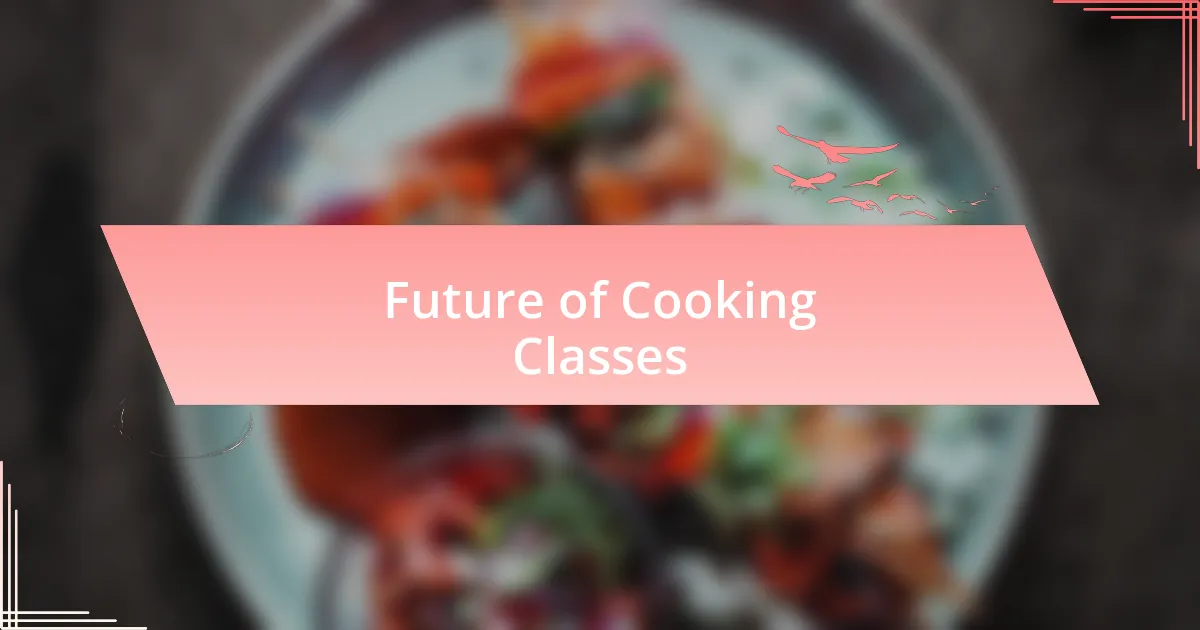
Future of Cooking Classes
The future of cooking classes is shifting towards more immersive, technology-enhanced experiences. I envision virtual reality cooking classes becoming commonplace, allowing participants to engage with recipes in a three-dimensional space. Imagine being able to turn your kitchen into a replica of an Italian trattoria while learning to make pasta from a chef in Rome. Wouldn’t that create a whole new dimension to the way we learn culinary skills?
Additionally, I believe we’re going to see a rise in classes that cater to various dietary preferences and health needs. As someone who has experimented with plant-based cooking, I can attest to the growing interest in vegan options. Future classes might offer specialized sessions on gluten-free cooking or fermenting, appealing to health-conscious individuals who wish to learn the art of nourishing their bodies through food. How exciting is it to think about a future where cooking classes are tailored to meet the unique needs of every participant?
Community engagement will also play a pivotal role in the evolution of cooking classes. I recall attending a local culinary event where chefs collaborated with farmers, emphasizing sustainable practices while educating attendees. In the future, I foresee more classes integrating this community aspect—bringing people together not just to cook, but to share stories about the ingredients and their origins. Isn’t it fascinating that cooking could foster deeper connections among us, all while we learn together?